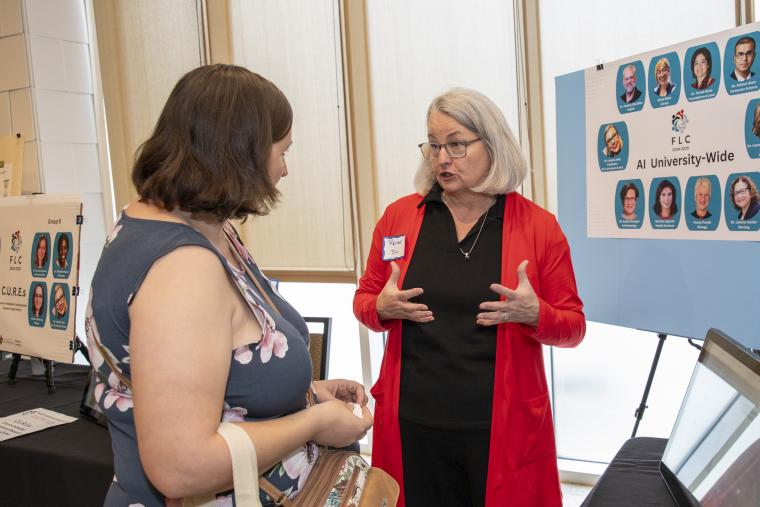AI in the Classroom: MIT Study Explores ChatGPT and Critical Thinking

As instructional designers and technologists within the Office of Distance Learning, one of our goals is to help faculty navigate new and changing technologies in education, including AI. Our website includes a reference bank of generative AI tools and possible uses, as well as guidelines for both encouraging and preventing AI usage.
We’re in good company as institutions worldwide consider the role of AI in education, including MIT. Recently, the MIT Media Lab published a study raising important questions about how generative AI may be shaping student learning.
What the Study Found
The MIT Media Lab study compared brain activity among participants writing SAT-style essays using ChatGPT, Google Search, or no tools at all. EEG scans revealed that ChatGPT users showed the lowest neural engagement, especially in areas tied to creativity and memory. Over time, these users became more reliant on the tool, often defaulting to copy-paste strategies.
In contrast, those who wrote unaided showed the highest cognitive activity. Evaluators described AI-generated essays as “soulless” and lacking originality, echoing concerns many educators share.
Implications for Higher Ed
Though the study is small and not yet peer-reviewed, it raises a key question: Are we outsourcing too much of the thinking process to AI? In higher education, where critical thinking and originality are core values, this is a serious concern.
Still, AI isn’t inherently harmful. Like calculators or spellcheck, it can be a powerful aid when used with intention.
Teaching With AI, Not Against It
Rather than banning AI or embracing it blindly, educators might consider a more balanced approach:
- Transparency: Encourage students to disclose AI use.
- Process Over Product: Focus on drafts, reflections, and peer feedback.
- AI Literacy: Teach students to evaluate AI content critically and understand its limitations.
These strategies help students become responsible tech users instead of passive consumers.
To support students in developing ethical, effective AI competency, we coordinated with the University of Louisiana System to design and offer a free microcredential course students can take independently or as part of another course at UL Lafayette.
Looking Ahead
The MIT study is just one piece of a larger conversation. We need more research across disciplines and student populations. Faculty reactions to AI vary—some see it as a tool for scaffolding, others worry about academic integrity. Both perspectives are valid and deserve space in our discussions.
AI isn’t going away. The real question is how we use it to support learning, not replace it. As educators, our role is to guide that process with care, curiosity, and a commitment to student growth.
Steinmetz, K. (2025, July 11). AI is learning from your kids. What do we do about it? TIME. https://time.com/7295195/ai-chatgpt-google-learning-school/
